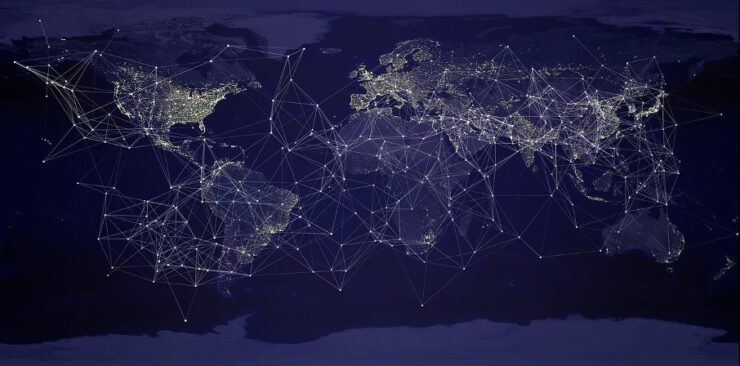Documentation
A Networked Truth: Re-imagining technology through human values – Pauline Munnich

During the last seminar of TiM “Imagining Feminist Cryptoeconomics” Inte Gloerich and Ania Molenda gave a workshop on blockchains and how we could potentially reimagine them as something beyond capitalism. Currently, block-chaining affordances are used to create economic systems. The workshop session asked us to rethink what would happen if we changed the values when it came to block-chaining, to re-conceptualize the topics of truth, proof, anonymity/autonomy, finance and economy as understood by the logic of block-chaining.
One of the topics provided to us, to guide us in our thinking about block-chaining and its re-imagining, was truth. By reflecting on the practice of block-chaining, truth could be reconceptualized as a networked truth where a group of people together agree on what is to be accepted as true, instead of having a centralized authority that determines what is true or not. If one person in this community does not accept something as true, truth is not altered. I found this concept of network truth rather interesting, it poses a more optimistic perspective on current thoughts on network society and how it is changing processes of sense-making.
Network societies foster a networked individualism where place and time no longer demarcate the interaction (Wellman, 2002, 10-12; 15-18). Instead of social structures being bound up in groups or little boxes with clear boundaries, we have moved to person-to-person connectivity (10-12). Blommaert (2018) notes that the communities formed from these connections are based on shared interests compared to traditional communities (63-73). We can have many of these light communities, switching between our network connections if we want to.
The downside of these connections is, however, that it fosters cruel optimism. In our need for affective belonging, we buy into the false promises of misinformation to affirm commitment to a particular community (Young 2021, 2). A different truth, in other words, does not benefit the person as much as the community they stand to lose if they accept it (2-3). Consequentially, in our networked connections, belonging matters above truth. We decide on a truth within this networked community, agreed upon by its participants, but through it, we disregard truths that are not agreed upon (3).
If our network society is here to stay, and so are its connections, how can we re-imagine truth in such a way that it does not disregard unaccepted truths? Re-imagining this network truth based on difference and disagreement, instead of unanimity could already change the entire way network truth would function. Rather than believing there to be a single agreed-upon truth, the community could accept multiple different truths. By merely incorporating a different value, the logic of the blockchain shifts.
Works Cited
Blommaert, Jan. 2018. Durkheim and the Internet : On Sociolinguistics and the Sociological Imagination. Bloomsbury Academic.
Wellman, Barry. 2002. “Little Boxes, Glocalization, Networked Individualism.” In Digital Cities II: Computational and Sociological Approaches, edited by Makoto Tanabe, Peter van den Besselaar, and Toru Ishida, 10–25. Springer.
Young, Jason C. 2021. “Disinformation as the Weaponization of Cruel Optimism: A Critical Intervention in Misinformation Studies.” Emotion, Space and Society 38 (February). https://doi.org/10.1016/j.emospa.2020.100757.

